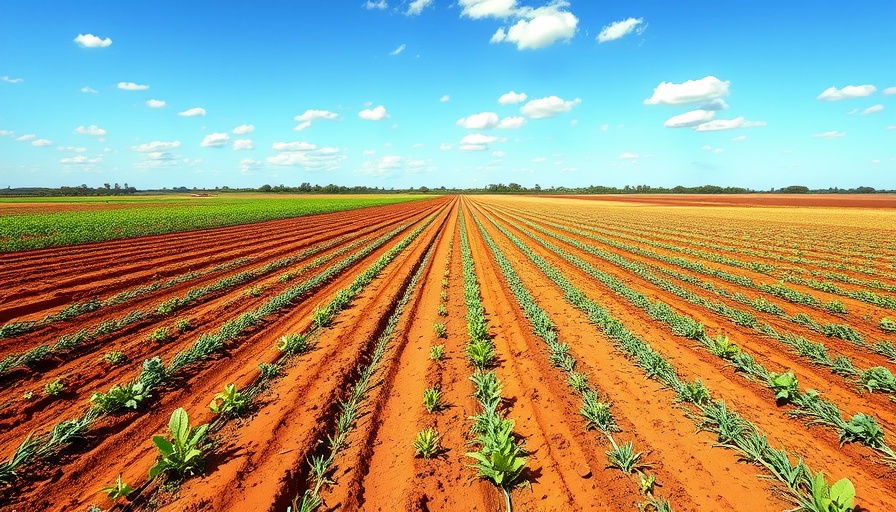
The Importance of Soil Fertilization for Crop Productivity
Soil fertilization is crucial in agriculture, significantly affecting crop yield and efficiency. The right balance of nutrients not only nurtures plants but can also be a game-changer for farmers looking to optimize their production practices. Recent studies have highlighted the impacts of managing fertilization levels more strategically to enhance crop outcomes.
Understanding Fertilization Levels
Soil fertility is rooted in its nutrient composition, which comprises microorganisms, organic matter, and minerals. The correct type and amount of fertilizer can improve soil health, allowing it to support robust plant growth. Conversely, over-fertilization can lead to nutrient runoff, harming local waterways and contributing to environmental issues such as algal blooms. Balancing fertilization levels helps minimize these risks while maximizing crop productivity.
The Role of Technology in Maximizing Fertilization Strategies
Advancements in agriculture technology, from precision farming tools to data analytics, have transformed how farmers manage fertilization. By utilizing soil sensors and satellite imagery, farmers can gain real-time insights into nutrient needs, allowing for precise application of fertilizers. These technologies help in determining the optimal fertilization levels, enhancing sustainability while ensuring better yields.
Future Predictions: Sustainable Farming Practices
As global populations rise, the demand for efficient food production increases. Therefore, adopting sustainable farming practices is imperative. Experts predict that the future of farming will increasingly rely on biotechnology to increase nutrient use efficiency in crops. Innovations in crop genetics may lead to plants that require fewer fertilizers but still yield the same or higher quantities. This advancement could reshape the agricultural landscape by promoting sustainability.
A Call for Farmers to Embrace Change
Farmers are encouraged to embrace these evolving technologies and management practices. Staying informed about advancements in soil biology and biotechnology can empower them to make educated decisions regarding fertilization, having far-reaching benefits not just for their businesses but for entire ecosystems.
In conclusion, understanding and managing soil fertilization levels efficiently can lead to more productive crops, ultimately supporting a growing global population. By harnessing the power of technology and sustainable practices, farmers can ensure a healthier future for us all.
 Add Row
Add Row  Add
Add 




Write A Comment